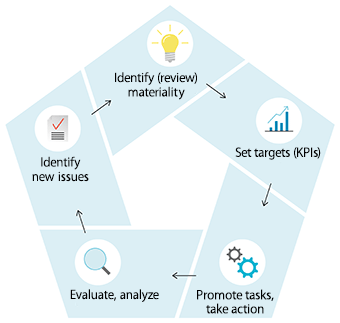Material Sustainability Tasks (Materiality)
We have analyzed the relationship between social issues, such as the SDGs, and the MEDIPAL Group’s business activities based on our management philosophy. We have identified materiality in six categories that will support our goal of resolving social issues and achieving sustainable growth for the MEDIPAL Group. We have set medium- to long-term targets in each category of materiality and will progress specific initiatives at each Group company.
| Material Sustainability Tasks (Materiality) | Targets and KPIs | Relevant SDGs |
|---|---|---|
|
Sustainable Distribution in the “Pharmaceutical, Health, and Beauty” Fields
Growing through the creation of social and economic value by building a safe and secure distribution network in normal times and during emergencies |
Improve productivity by integrating distribution and create new distribution functions to add ¥1.5 billion to ordinary profit in the FY2026 (compared with FY2021) |
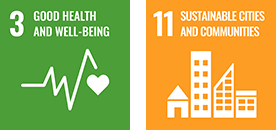
|
|
Enhancement of Profitability through New Value Creation
Connecting various people, goods, and services to create new value for the world in cooperation with partners in a forward-looking spirit |
Pursue growth strategy to add ¥21.5 billion to ordinary profit in the FY2026 (compared with FY2021) |
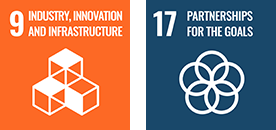
|
|
Development of Future-Oriented Human Resources
Developing future-oriented human resources who work proactively toward achieving the ideal situation for MEDIPAL |
Proportion of employees maintaining a constant level*1 as future-oriented human resources*2 of 20% |
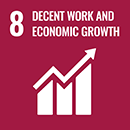
|
|
Promotion of Diversity and Inclusion
Creating an open, active, and cooperative culture that respects employees' diverse personalities and enables them to maximize their potential |
|
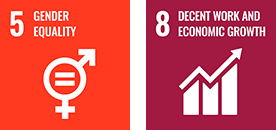
|
|
Initiatives for Decarbonization
Conducting business with environmentally friendly activities to reduce greenhouse gas emissions and our environmental impact together with stakeholders |
Targets for reduction of greenhouse gas emissions (Scope 1 + Scope 2)
|

|
|
Sound and Transparent Corporate Management
Maintaining sound ethical standards in all business activities through the enhancement of compliance, regulatory affairs management, information security, and corporate governance |
|
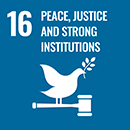
|
- *1 Persons who have obtained the highest level in the competency evaluation standards.
- *2 This refers to ideal human resources who realize the MEDIPAL Group management philosophy and support the future. Such human resources take on challenges while leveraging their strengths, and generate and transform circumstances, no matter the difficulties they face.
Process to Identify Material Sustainability Tasks (Materiality)
We combined and mapped the information after identifying issues that are highly important for society and stakeholders as well as for the MEDIPAL Group, as shown in the chart below. As a result of discussions on order of priority and appropriateness, we identified materiality for the MEDIPAL Group in six categories.
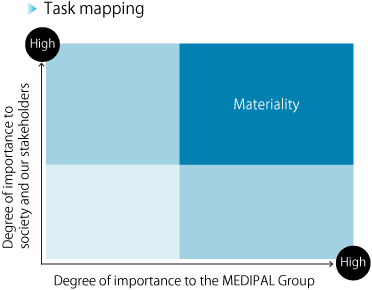
| Step 1: Identify social issues | We comprehensively listed 85 items of social issues that reflect industry trends and perspectives on the GRI guidelines, SASB, SDGs, and other long-term matters. |
|---|---|
| Step 2: Evaluate importance | Questionnaires on the items of social issues identified in Step 1 were sent out to the CSR Committee members, outside directors, and managers, with instructions to evaluate the items from the perspective of the degree of importance to society and our stakeholders and the degree of importance to the MEDIPAL Group and to assign priorities. |
| Step 3: Create a draft of materiality | Based on the evaluations in Step 2 and the opinions of outside directors, the CSR Committee discussed the appropriateness and order of priority of the items and then created a draft of materiality. |
| Step 4: Discussion and decision at the management level | Management debated the draft produced by the CSR Committee before a decision on the materiality at the Board of Directors. |
Materiality Management
The CSR Committee plays a central role in materiality management at the MEDIPAL Group, working in cooperation with relevant departments. We announced our sustainability policy and material sustainability tasks together with the release of the 2027 MEDIPAL Medium-Term Vision in October 2022. We then set targets (KPIs) for all materiality sustainability tasks and are regularly checking on progress made with these tasks. In the future, we will review the tasks as needed in line with social and business changes, and will also work to strengthen our initiatives by disclosing the status of progress and through dialogue with stakeholders.
